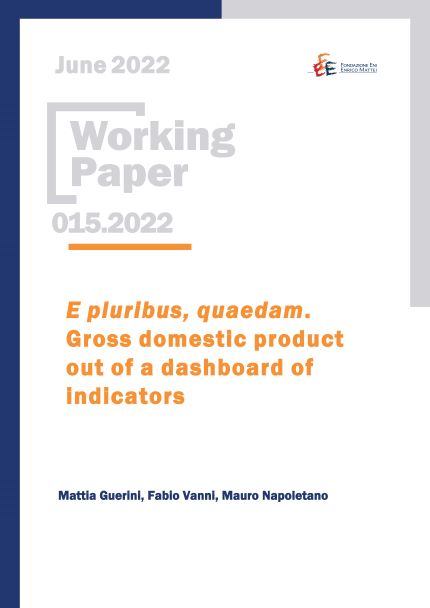E pluribus, quaedam. Gross domestic product out of a dashboard of indicators

30.06.2022
Mattia Guerini (University of Brescia, Fondazione Eni Enrico Mattei, GREDEG, CNRS, Université Côte d’Azur and Institute of Economics, Sant’Anna School of Advanced Studies); Fabio Vanni (Università degli Studi dell’Insubria, GREDEG, CNRS, Université Côte d’Azur and Institute of Economics, Sant’Anna School of Advanced Studies); Mauro Napoletano (GREDEG, CNRS, Université Côte d’Azur and Institute of Economics, Sciences Po, OFCE, SKEMA Business School and Institute of Economics, Sant’Anna School of Advanced Studies)
C43, I30, I31
Gross domestic product, well-being indicators, data reduction techniques, principal component analysis, random matrix
Is aggregate income enough to summarize the well-being of a society? We address this longstanding question by exploiting a novel approach to study the relationship between gross domestic product (GDP) and a set of economic, social and environmental indicators for nine developed economies. By employing dimensionality reduction techniques, we quantify the share of variability stemming from a large set of different indicators that can be compressed into a univariate index. We also evaluate how well this variability can be explained if the univariate index is GDP. Our results indicate that univariate measures, and GDP among them, are doomed to fail in accounting for the variability of well-being indicators. Even if GDP would be the best linear univariate index, its quality in synthesizing information from indicators belonging to different domains is poor. Our approach provides additional support for policy makers interested in measuring the trade offs between income and other relevant socio-economic and ecological dimensions. Furthermore, it adds new quantitative evidence to the already vast literature criticizing GDP as the most prominent measure of well-being.
***
Suggested citation: M. Marini, F. Vanni, M. Napoletano (2022), ‘E pluribus, quaedam. Gross domestic product out of a dashboard of indicators’, Nota di Lavoro 015.2022, Milano, Italy: Fondazione Eni Enrico Mattei
